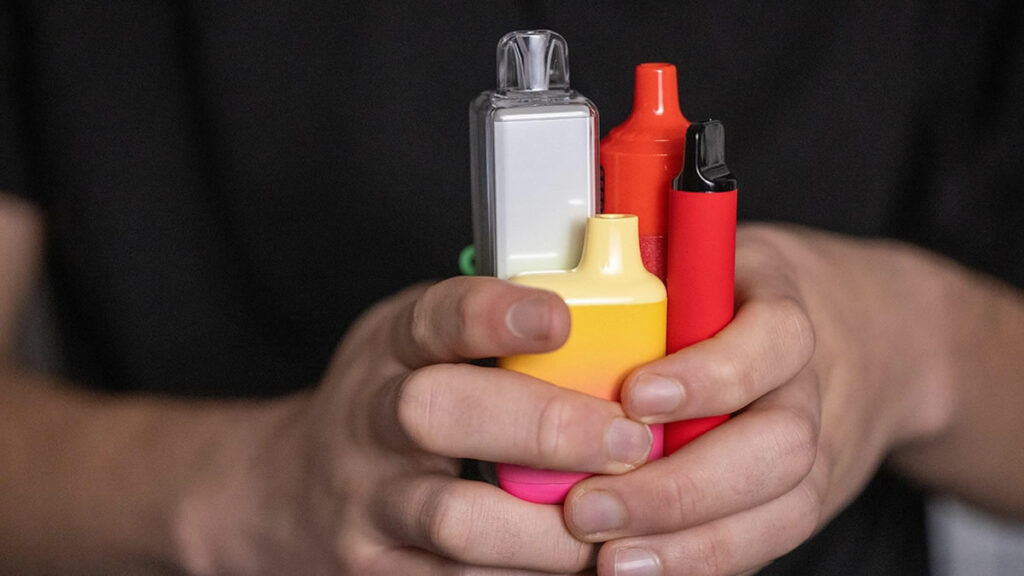Material Focus Research Suggests Government’s Disposable Vape Ban May Not Adequately Address Environmental Concerns
A recent study conducted by Material Focus, a UK-based organization focused on sustainable materials management, has revealed that 8.2 million out of the 13.5 million vapes purchased weekly in the UK are either improperly disposed of or incorrectly recycled. This alarming statistic underscores the growing environmental challenges posed by the vaping industry, despite the government’s upcoming ban on disposable vapes set to take effect in June 2025.
Lack of Clear Recycling Information and Infrastructure
The Material Focus research highlights a significant knowledge gap among consumers, with 77% of respondents reporting a lack of access to clear information about recycling options for vapes. This lack of awareness, combined with insufficient recycling infrastructure, has contributed to the improper disposal of vaping devices, leading to an increased risk of battery fires.
According to the study, the number of battery fires has risen by 71% over the past year, from 700 in 2022 to more than 1,200 in 2023. Lithium batteries, which power most vaping devices, have been identified as the primary cause of these fires, posing significant challenges for recycling centers and waste management facilities across the UK.
The Rise of “Big Puff Vapes” and Potential Legislation Gaps
Material Focus warns that the government’s forthcoming disposable vape ban may not effectively curb the environmental damage caused by vaping, as consumers shift towards “big puff vapes” – a new alternative that falls outside current restrictions. These devices can hold up to 6,000 puffs per vape, compared to an average of 600 per single-use vape, and have already gained popularity among various age groups.
Scott Butler, Executive Director of Material Focus, expressed concern about these trends, suggesting that more flexible legislation may be necessary to address the ongoing challenges posed by new products entering the market.
The Environmental Impact of Vape Waste
Beyond the risk of waste fires, vapes have been dubbed “one of the most environmentally wasteful, damaging, and dangerous consumer products ever made” by Material Focus. These devices contain rare materials such as copper and lithium, which are often discarded rather than recycled. The study suggests that the lithium inside discarded vapes could potentially power over 10,000 electric car batteries annually.
Recommendations for Improved Recycling Rates
With up to 80% of vape materials being recyclable, Material Focus emphasizes the need for comprehensive recycling and take-back options, as well as major awareness campaigns, to address the growing environmental concerns. The organization recommends several actions to improve recycling rates, including:
- Enhanced recycling information on packaging and in stores
- Increased recycling points in retail stores, public spaces, and community areas
- Consumer awareness campaigns encouraging vapers to shop from retailers offering recycling facilities
- Mandated in-store collection as part of a licensing system for vape sales
As a vaping industry professional, it is crucial to acknowledge the environmental challenges posed by improper vape disposal and to actively support initiatives that promote responsible recycling practices. By working collaboratively with organizations like Material Focus, government agencies, and consumers, the industry can help develop sustainable solutions that minimize the environmental impact of vaping while ensuring the availability of safe, regulated products for adult consumers.
- Myanmar Enacts Total Ban on E-Cigarettes and E-Shisha - February 25, 2026
- UK Announces Mandatory Vape Tax and Duty Stamps from 2027 - February 10, 2026
- Sri Lanka Travel 2026: Total Ban on Cigarettes & Vapes - February 5, 2026


